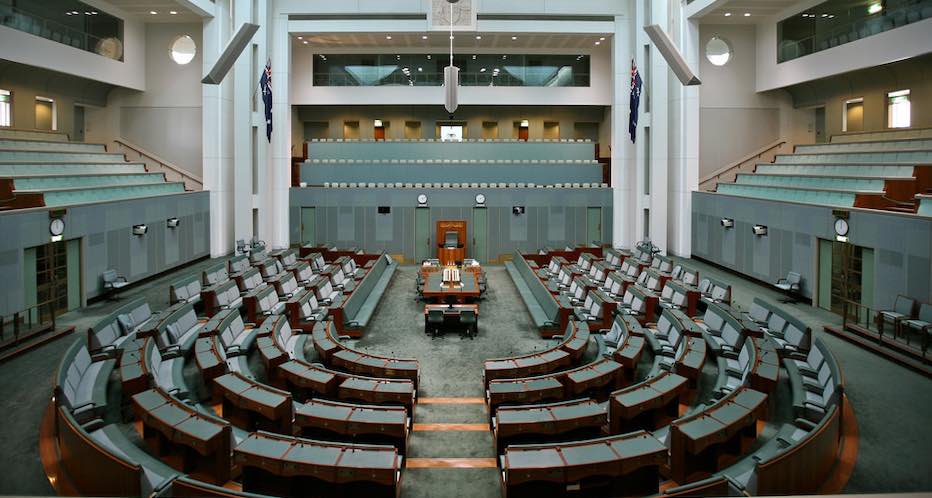On Tuesday evening, the House of Representatives passed a bill supporting the transfer of asylum seekers on Manus Island and Nauru to Australia for urgent medical care. The bill, initially put forward by independent MP Kerryn Phelps in late 2018, provides expanded capacities that allow two doctors to initiate medical transfers if deemed necessary to provide adequate medical care.
To assume that Australian border control will disintegrate at the hands of a bunch of emboldened doctors is a vast exaggeration.
After a filibuster in the senate delayed the return of an amended bill to the lower house before Christmas, the new parliamentary year started with strong partisan divides between Labor and Greens supporting the amended bill against concerns by the Coalition government that it may start an unravelling of border control.
However, amidst the political controversy, the bill has also ignited a wider question around the limits of political discretion in the name of national security. In particular, should doctors be allowed to circumvent politicians in determining who can access transfer to Australia?
The moral case for the medical transfer bill is a compelling one. Statistics from the Australian Border Deaths Database have shown 37 deaths in onshore and offshore immigration detention facilities since 2010, of which 12 deaths occurred on Nauru and Manus Island. The findings of a coronial inquest into the 2014 death of Hamid Khazaei, a 24-year-old Iranian man who had been detained on Manus Island, concluded that his death had been preventable and that he had failed to receive care “broadly comparable with health services available within the Australian community”.
Hamid had died from multi-organ failure after initially presenting with a leg infection. He was sent to Port Moresby, where the health services were inadequately equipped to treat his condition. As such, the amendments under the Urgent Medical Transfer Bill, seeking to ensure urgent medical transfer to Australia where adequate care cannot be delivered in offshore centres, have received widespread support from the medical community.

Yet critics of the bill have argued that unelected medical practitioners lack the political legitimacy and authority to make decisions relating to border control. Instead, elected politicians and bureaucrats should reserve the political discretion to prioritise issues of national security. It is true that the priorities of doctors are largely restricted to the wellbeing of the individual patient, away from the wider challenges of border security and economic policy. But there are a number of flaws in this argument.
First, to assume that Australian border control will disintegrate at the hands of a bunch of emboldened doctors is a vast exaggeration. This undercuts a profession that has founded itself on a commitment to moral integrity. On a practical level, critically unwell patients tend to be too preoccupied with receiving life-saving medical care to challenge national security.
Second, the amended legislation provides generous room for bureaucrats to specify the most appropriate location, conditions and duration of the transfer, or to overrule transfers that pose a risk to the Australian public.
The task the public face is in disentangling the dual aims of immigration control and a commitment to a standard of healthcare. By intertwining the narrative of these issues, it becomes increasingly difficult to define the limits of the grey zones where bureaucratic oversight, international law, and medical expertise overlap.
Had the bill failed to pass yesterday, Australians would have found themselves in a situation without a guarantee on a standard of medical services for asylum seekers under official care. Australia would continue to lack the mechanisms to hold the government to account for avoidable deaths (such as that of Khazaei), instead relying on bureaucratic discretion to determine the suitability and urgency of medical transfers.
Instead, the decision by the House of Representatives to pass the bill has provided a clear message that in some cases, medical expediency is paramount. By recognising these medical priorities as distinct from political ones, the House has demarcated a clear limit on governmental powers in the name of national security.
Rather than viewing the outcome as a political success or defeat, politicians should view this bill as a trial of accountability for government. Political discretion is one thing, but unfettered discretion that is free of accountability and compromises the lives of individuals is different. Discretionary powers must remain accountable to the people they intend to serve.
In the same way, the doctors who have gained expanded capabilities through this bill can expect to be held accountable for the decision they make, further strengthening the system.

